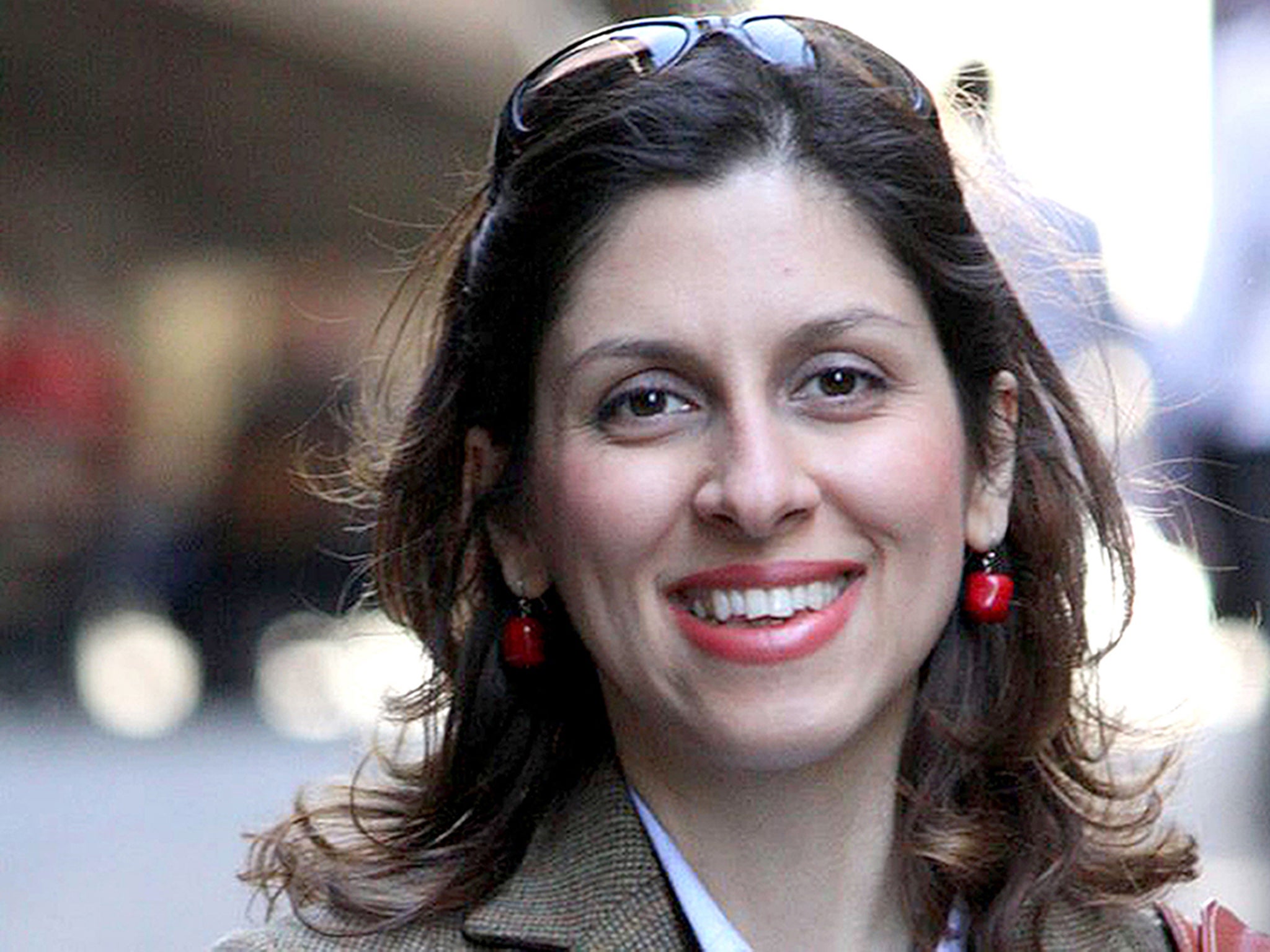Nazanin Zaghari-Ratcliffe: Husband of British mother jailed in Iran urges government to use aid to help secure her release
Richard Ratcliffe fears his wife is being used for leverage in a long-running legal dispute with Tehran

The husband of imprisoned British-Iranian mother Nazanin Zaghari-Ratcliffe is pressing the government to use humanitarian aid for Iran to break the logjam on a long-running dispute that her supporters believe may be holding back her release.
Richard Ratcliffe believes his wife is being used as a bargaining chip in Iran’s claim for the payment of a debt of around £400m dating back to the 1970s.
And he fears that even if a settlement is reached over the sum owed, international sanctions regimes – and pressure from the US – may prevent the payment of the funds to the Iranian military or state bank.
Nazanin’s supporters believe the sanctions issue could be bypassed if, instead of sending pallets loaded with cash to Tehran, the UK provided aid supplies such as medicines.
But they say that the Treasury and Ministry of Defence have not responded to requests for a meeting to discuss the proposal.
The dispute involves contracts placed with the UK government-owned International Military Services in 1971 to supply more than 1,500 tanks and armoured vehicles to the Shah of Iran.
The deal was cancelled when the Shah was deposed in the 1979 Islamic Revolution, but Iran had already paid for the undelivered tanks and demanded its money back. It won an arbitration case in 2001 and IMS paid monies now thought to total more than £500m into the High Court as security, but legal wrangles over the size of the bill continue.
A High Court judge is currently considering his ruling on the amount owed, following a hearing in London last week. His judgment is expected within the next few weeks.
However, IMS’s lawyers say the company believes it cannot release the funds to Iran’s Ministry of Defence and Support for Armed Forces Logistics (MODSAF) or Central Bank because it would “drive a coach and horses” through the sanctions regime.
Any payment would have to be approved by the Treasury’s Office of Financial Sanctions Implementation.
Both UK and Iranian authorities deny that the IMS case is linked to the detention of Nazanin, who has been held for more than three years on spying charges after being arrested on a visit to family in 2016 with her daughter, then 22 months old.
Mr Ratcliffe, who fears his wife’s health is deteriorating due to her long imprisonment, told The Independent that the use of aid in place of cash could be a way around the sanctions issue.
“I’ve been sceptical for a long time that sanctions are really an obstacle to solving the UK’s debt to Iran, particularly since the government would never let our lawyers meet the Treasury’s solicitors to discuss it,” he said.
“As the months ticked by, sanctions never seemed to stop the UK signing more energy deals, and sanctions do not seem to be the real blockage. Even today I remain unsure what is – or why the government will not be open about this and ways of paying including by humanitarian aid.”
The foreign secretary, Jeremy Hunt, warned this week that allowing the settlement of the case to be seen as a “ransom” for Nazanin’s freedom would risk further dual nationals being targeted by the Tehran regime, in comments which her supporters took as a tacit admission that her fate was linked to the IMS case.
”The reality is that Nazanin is an entirely innocent woman who is being held as a tool of diplomatic leverage by Iran and we don’t know exactly what it is they’re looking for,” said Mr Hunt.
“But the problem is if you pay ransom money to someone who is a hostage, then all that happens is you might get that hostage out, but the next time they want something, they’ll just take someone else hostage, that is the conundrum you have.”
US president Donald Trump responded with scorn to his predecessor Barack Obama’s payment of $1.7bn (£1.35bn) to Iran in 2014 in settlement of a similar dispute relating to military orders dating back to before the revolution. Wads of euros, Swiss francs and other currencies were flown to Tehran on pallets in a series of flights.
Nazanin’s supporters fear the White House may be putting pressure on the UK not to repeat the exercise, and believe that any such objections may be allayed by the use of development aid in place of cash.
They stress that they are not asking the UK government to make payment of the IMS debt conditional on Nazanin’s release.
A UK government spokesman said: “This is a long-standing case and relates to contracts signed more than 40 years ago with the pre-revolution Iranian regime. The government is united in its approach towards this case.
“While legal proceedings are ongoing, funds to settle this case were lodged with the courts in 2002. However, Iran’s Ministry of Defence (MODSAF) is subject to EU sanctions. We await the court’s judgment.”
Subscribe to Independent Premium to bookmark this article
Want to bookmark your favourite articles and stories to read or reference later? Start your Independent Premium subscription today.

Join our commenting forum
Join thought-provoking conversations, follow other Independent readers and see their replies